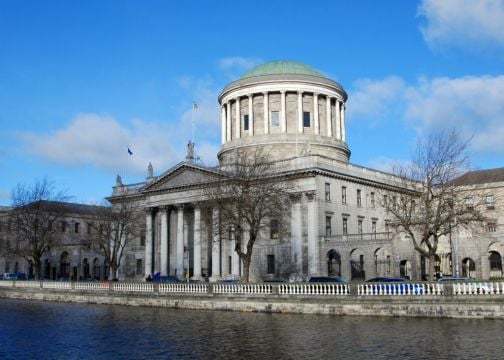A 25-year-old African man who claimed that he fled Malawi after his sister was murdered due to having Albinism has won a High Court reprieve in his bid to remain here.
This follows High Court judge, Mr Justice Charles Meenan directing a rehearing of the man’s application before the International Protection Appeals Tribunal (IPAT).
It is the second time that a High Court judge has directed a re-hearing of the case before IPAT after the High Court re-directed a hearing into the case in December 2018.
Mr Justice Meenan said that as part of the re-hearing a question which has to be considered is to what extent, if any, family members of persons with albinism but who do not present with the signs and characteristics of albinism face danger in Malawi.
The High Court was told that there "is a significant market for body parts from persons with albinism" in Malawi.
The applicant does not present with the signs and characteristics of albinism, but his sister was Albino.
The girl left her home on a date in March 2016 to attend a prayer meeting but never returned and following a search, her body was found but some of her body parts had been removed.
The man stated that the next thing that happened to him was that he was attacked at his home in April 2016.
He did not know who the attackers were but believes that the attackers thought that he was an albino because his sister was albino and that they would try to use some of his body parts to get money.
The applicant arrived in Ireland in May 2016 and made an application for protection that June stating that he is afraid to return to Malawi as he believes that the men who attacked him are still looking for him, and he would not be safe even in the two largest cities in Malawi.
They are being hunted for their bones and body parts.
As part of his country of origin questionnaire with the authorities here, the man stated that “People are in huge amounts of danger because they are born with a genetic condition called Albinism”.
He said: “They are being hunted for their bones and body parts, and the perpetrators are going unpunished. ...” and “even the dead are not left in peace. Police recorded at least 39 people with albinism being illegally exhumed from graves, or having body parts removed from their corpses”.
The IPAT has twice rejected the applicant's bid to remain here.
As part of his case before the High Court, the man’s lawyers argued that the Tribunal failed to properly consider the dangers faced by persons and their families in Malawi who have albinism.
The lawyers stated that the then ‘Malawian President Peter Mutharika issued a statement condemning the wave of attacks on people with albinism where called on police to arrest perpetrators and protect those with albinism and their families at risk of attack – but police and governmental response since then has been lacklustre".
The International Protection Appeals Tribunal stated that “without having sight of the President’s full statement, it is impossible to know exactly what the President was referring to and the Tribunal is not prepared to hazard a guess at what he meant”.
The man’s bid to remain was rejected after the Tribunal concluded that “on the balance of probabilities the Tribunal does not accept that family members of albinos are targeted for attack and killing simply by virtue of their family relationship to albinos".
In his ruling published online on Monday, Mr Justice Meenan stated that based on incomplete information, the Tribunal stated it was “not prepared to hazard a guess at what he meant” referring to the statement of President Mutharika.
He said: “However, the Tribunal then put a construction on the said words against the case being made by the applicant. In my view, the Tribunal fell into error in so doing. In a sense, the Tribunal was doing what it said it would not do and proceeded to “hazard a guess” on what it accepted to be “incomplete” information.”







